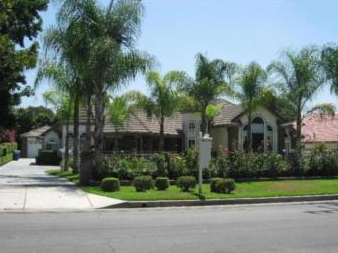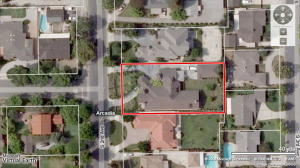For those who enjoy the Victorian style homes, here’s a special one; a 4,693sf single story property sitting on .41 acres. It was remodeled in 2002 and it looks to be in great condition inside and out.
1910 S 2nd Ave.
Arcadia, CA 91006
Price: $1,380,000 ($294/sf)
- Beds: 4
- Baths: 4
- Sq. Ft.: 4,693
- Lot Size: 0.41 Acres
From the listing:
This is a lucky house, owner has moved to a multi-million dollar home. Price right for quick sale.
Price right, you say? Although this home was upgraded in 2002, is it enough to warrant a $500,000 premium over the 2002 purchase price? Is the seller moving into a multi-million dollar home because some knife catcher is going to pay for it?
Sales History
Feb. 1989 $1,100,000 ($234/sf)
May 1992 $970,000 ($206/sf)
July 1995 $777,000 ($165/sf)
Apr. 2002 $850,000 ($181/sf)
This is exactly why you never want to buy during the peak of a bubble. As we can see here, the 1989 buyer would have lost money on his home even after 13 years of ownership! This is why I believe renting, even at the cost of inconvenience (i.e. school, children, relocation, ect), is worth it when home prices are highly inflated.
I know family members who decided not to sell their home during the peak of the bubble because it was “troublesome” to move everything and rent a smaller place. Now that prices are declining, they are regretting the decision to not cash in on $600k of pure equity.
On the other hand, I also know people who bought during the last 2 years because prices have “softened” and they would be living in it for 5-7 years. Of course, they are now freaking out because it’s very possible their home would be underwater that entire time… or even longer.
But I digress. Here is my evaluation:
After 6 years of ownership…
3% $1,014,944 ($216/sf)
4% $1,075,521 ($229/sf)
5% $1,139,081 ($243/sf)
6% $1,205,741 ($257/sf)Currently listing for $1,380,000 ($294/sf)
Based on the 6% figure, would you rent if it could save you $180,000 over the next 2 years?


Wow. This still looks to be high — but according to your numbers it may only be over priced by a few $100K. I know that is real money — but its also not the hyper inflation I am used to seeing in house prices.
Great site, keep up the good work!
The kitchen looks old and dated. So, what was done in 2002?
That was actually my first impression. Then you look closely and it could be that the owner purposely “upgraded” or left it that way.
From the map you can see that the house has a big “feng shui” problem. A street is running towards it. Most Asians will have problem with this. It might be a reason for the more “reasonable” list price, compared with other houses.
I feel the same as you do after seeing the aerial map. The Fung Shui will be an issue for some potential buyers.
If you move around the street view, you can see that there is a for sale sign. This must have been a repost.
The listing was meant to read: “Owner hopes to get lucky selling this house, so he can afford the multi-million dollar home he moved in”.
That scheme stopped working in about, well, 2006.
Looks like something bigger than the subprime meltdown is about to take a shot at the depressed housing market-Recession. With rising umeployment, tightened credit (both individual and commercial), % will go up (not due to Fed raising %, but due to concern over defaults) and demand will drop b/c of unemployment. I would not be surprised if prices in SGV drop another 20% through 2009.
TK, Do you think this view that prices will drop another 20% is shared by the average “asian” buyer in the SGV? I still see some people who are visiting from outside the States thinking that US housing prices are reasonable since they are buying with cheap Euros, Reals (Brazil), and Renminbi. Although they see housing values dropping, they don’t appear reluctant to buy if they want to establish a second residence here for themselves or wife/children.
The average Asian buyer is no smarter (or dumber) then the average American buyer. People are people and the bubble does discriminate based on Race or Color. And many Asians live way beyond their means (just like Americans.) Their culture likes to show wealth by driving a Benz, carrying designer bags, and “appearing” to be wealthy. But my years in the banking business has let me know that Asians also have low bank accounts, maxed credit, and bills like everyone else. Once you see the car is leased, the LV bag on the Macy’s card, and the 2nd loan on the home to pay for “private pre-school” you begin to see things a different way.
So whether they pay in Euros or Chinese Dollars let them buy all the homes they want. The problem is that foreigners can’t buy there way into the United States. The US has complex system known as Immigration (USCIS). So in order to live in your cheap home, you need a job or to employ US citizens. You can’t just establish a 2nd residence here for your family. You can visit for a max of 6-months and if immigration is having a bad day you can get a 1-month stamp.
They keep saying that Florida will be ok once all the Europeans buy their vacation homes for dirt cheap. Unfortunately, that has not stopped it from crashing compared to last year’s prices.
Sean, you hit about a hundred nails right on the head with that post! Touche!
Yet the “rich Asian” myth perpetuates.